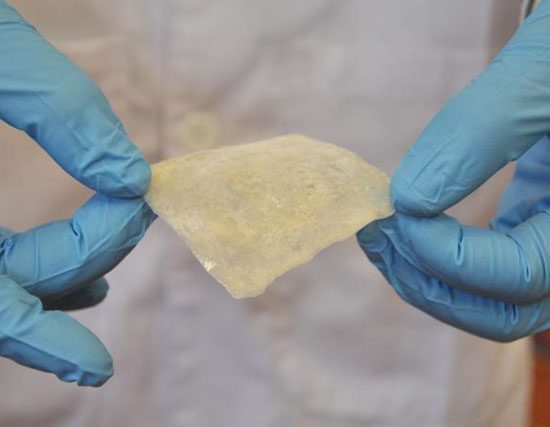A team of scientists researching Nano Technology and Nano Science, led by Dr. Xie Xian Ning from the National University of Singapore, has developed a soft, foldable film made from a type of PS plastic.This thin film exhibits superior energy storage capabilities compared to current battery technologies.
When the PS plastic film is sandwiched between two charged metal plates, it can store energy at a rate of 0.2 farads per square centimeter, which exceeds the typical upper limit of a standard capacitor (which can store about 1 microfarad per square centimeter).
According to Dr. Xie, compared to rechargeable batteries and supercapacitors, this exclusive PS plastic film has a very simple device configuration and low manufacturing costs. “Moreover, the performance of this exclusive PS plastic film surpasses that of rechargeable batteries, such as lithium-ion and lead-acid batteries, as well as supercapacitors.”

The cost of storing each farad of electricity is $0.62 (approximately £0.40) compared to about $7.00 (around £4.50) for each farad stored using liquid electrolyte based on current technology. This means that by using this exclusive PS plastic film, for a cost of $1.00, the energy storage can reach between 10 to 20 watt-hours, compared to using lithium-ion batteries, where $1.00 yields only about 2.5 watt-hours.
This research outcome arises amidst growing public concerns regarding the negative impacts of traditional energy sources on the environment and the prevailing trend of seeking alternative energy sources, aimed at developing environmentally friendly transportation means such as electric vehicles.
Hybrid vehicles (which use an electric motor to assist a gasoline engine) could benefit from the PS plastic film technology for storing and converting energy almost instantaneously, enhancing energy efficiency and reducing carbon emissions.
The PS plastic film can also be integrated into solar panels and wind turbines to help store and manage electrical energy more efficiently, contributing to the resolution of energy instability issues, a common challenge in solar energy systems, by storing excess energy and supplying electricity during times when natural factors do not provide sufficient energy, such as a lack of sunlight at night.
The research team is currently seeking collaboration opportunities with venture capitalists to commercialize this exclusive PS plastic film.


















































